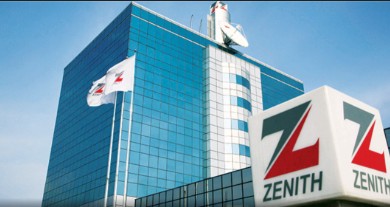Zenith Bank, Nigeria’s largest bank by profit, has reported a staggering N1.03 trillion profit after tax for 2024, yet its contributions to charity have raised concerns. Despite the bank’s massive earnings, only N4.75 billion—just 0.46%—was allocated to social causes.
This comes at a time when over 40% of Nigerians live below the poverty line and inflation has surpassed 30%. The paltry sum contrasts sharply with the urgent need for financial support as millions of Nigerians face economic hardship.
Jim Ovia, chairman of Zenith Bank, has been criticized for his role in an institution that critics claim benefits from the illicit wealth of Nigeria’s political and business elites. While Zenith is not directly implicated in scandals like the Panama Papers, the bank’s proximity to such financial flows has raised questions about its ethical standing.
Despite its record-breaking profits, Zenith’s charitable contributions are seen by many as insignificant, barely a fraction of what could be used to help those in need.
The situation is made worse by the bank’s alarming losses to fraud and forgeries in 2024. Zenith reported a total loss of N100.7 billion to fraudulent activities—21 times greater than its charitable donations.
This includes N7.7 billion in local currency and $62 million (roughly N93 billion) in foreign currency. In comparison, major U.S. banks like Bank of America and Wells Fargo allocate 1% to 2% of their profits to charitable causes, far outpacing Zenith’s 0.46%.
Additionally, Zenith’s involvement with the Nigerian Education Loan Fund (NELFUND), where Ovia was appointed chairman by President Bola Tinubu, has sparked criticism.
The bank donated just N250 million—or 0.024% of its profits—toward educational causes in 2024. With 20 million children out of school in Nigeria, the meager donation hardly addresses the scale of the educational crisis, raising suspicions about the bank’s real motivations.
ALSO READ :Gov. Umo Eno commends NDDC for promoting sports in the Niger Delta
Zenith Bank has also faced severe penalties from the Central Bank of Nigeria (CBN) for various infractions, totaling N15.42 billion in fines for issues ranging from money laundering lapses to mishandling customer charges.
The hefty penalties highlight systemic failures within the bank, underscoring concerns that its focus remains on appeasing political and business elites rather than investing in its customers or addressing regulatory shortcomings.
As 2025 approaches, there are calls for Zenith Bank to significantly improve its corporate governance and increase its charitable contributions.
By aiming for just 1% of profits—roughly N10.3 billion—in charitable donations and reducing fraud and fines, Zenith could enhance its reputation and make a meaningful impact on Nigeria’s development.
However, until such changes are seen, critics argue that Zenith Bank’s practices reflect a corporate culture that serves the few rather than the many, dragging Nigeria backward in a time of need.


 Entertainment1 week ago
Entertainment1 week ago
 Entertainment5 days ago
Entertainment5 days ago
 Comments and Issues1 week ago
Comments and Issues1 week ago
 Comments and Issues1 week ago
Comments and Issues1 week ago
 Business1 week ago
Business1 week ago
 Health6 days ago
Health6 days ago
 Comments and Issues1 week ago
Comments and Issues1 week ago
 Health3 days ago
Health3 days ago












